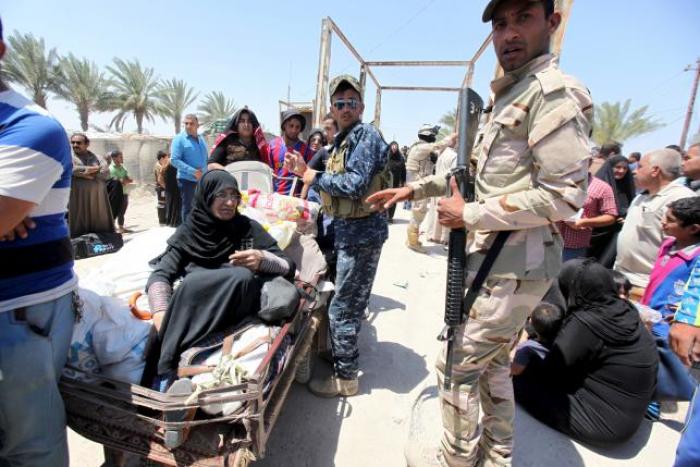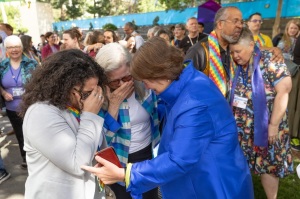ISIS Captures Iraq-Syria Border; Iraqi Forces Launch Counterattack, Retake Town Near Ramadi

Islamic State gained full control of a border crossing between Iraq and Syria Sunday, the day after an alliance of Iraqi forces managed to take back from the terror group a town east of Ramadi and advanced to liberate another neighboring town.
Islamic State, also known as ISIS or ISIL, has now full control over the Al-Walid border, which includes the two main roads between Syria and Iraq's province of Anbar, according to Agence France Presse.
ISIS forced the Iraqi coalition to pull back from the border after an offensive early Sunday, a week after the Sunni terror group seized the Iraqi city of Ramadi and days after it captured the historic Syrian city of Palmyra. ISIS' attacks on Ramadi over the past few weeks have left thousands of residents displaced.
"There was no military support for the security forces and there weren't enough of them to protect the crossing," Suad Jassem, the head of Anbar's border commission, was quoted as saying. "Daesh [ISIS] now controls both sides of both crossings."
Meanwhile, Iraqi forces were able to retake Husaybah, a town 4.5 miles east of Ramadi in an operation early Saturday.
"The Husaybah area is now under full control and the forces are now advancing to liberate neighboring Jweibah," a police colonel was quoted as saying.
"Today we regained control over Husaybah and are laying plans to make more advances to push back Daesh fighters further," Reuters quoted local tribal leader Amir al-Fahdawi as saying. "The morale of the fighters is high after the arrival of reinforcements and loads of ammunition."
Iraqi forces also managed to push back ISIS after an attack on the town of Khalidiya, Faleh al-Eissawi, deputy governor of Anbar province, told CNN.
The anti-ISIS coalition included Sunni tribal fighters, Iraqi security forces and a Shiite militia.
ISIS has apparently been trying to create sectarian tensions in Iraq.
"We're in for a very long summer of fighting in Iraq," professor Gareth Stansfield, the Middle East director of counter-terrorism think tank RUSI, told MailOnline. "Taking Ramadi will ... make the Shiite militia in Baghdad even more radicalized and more dangerous. And this is what ISIS wants, it wants it to come out and have sectarian scrap which forces all the Sunni's to go toward ISIS."
The U.S.-led international coalition forces launched 22 airstrikes on ISIS targets on Friday and Saturday. Four of the attacks took place near Ramadi.
ISIS is an offshoot of al-Qaeda and wants to establish a caliphate in the Levant region and beyond. It has gained control over large swathes of territories in Syria and Iraq, and now appear to be seeking to expand its territory.




























